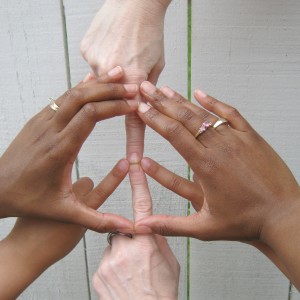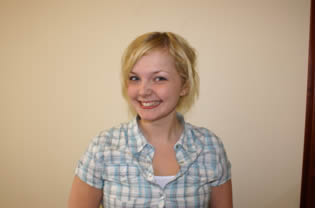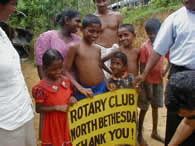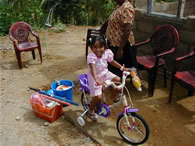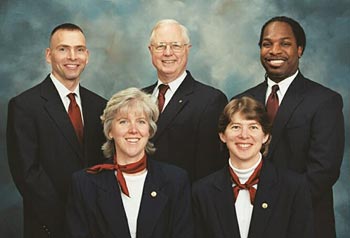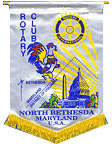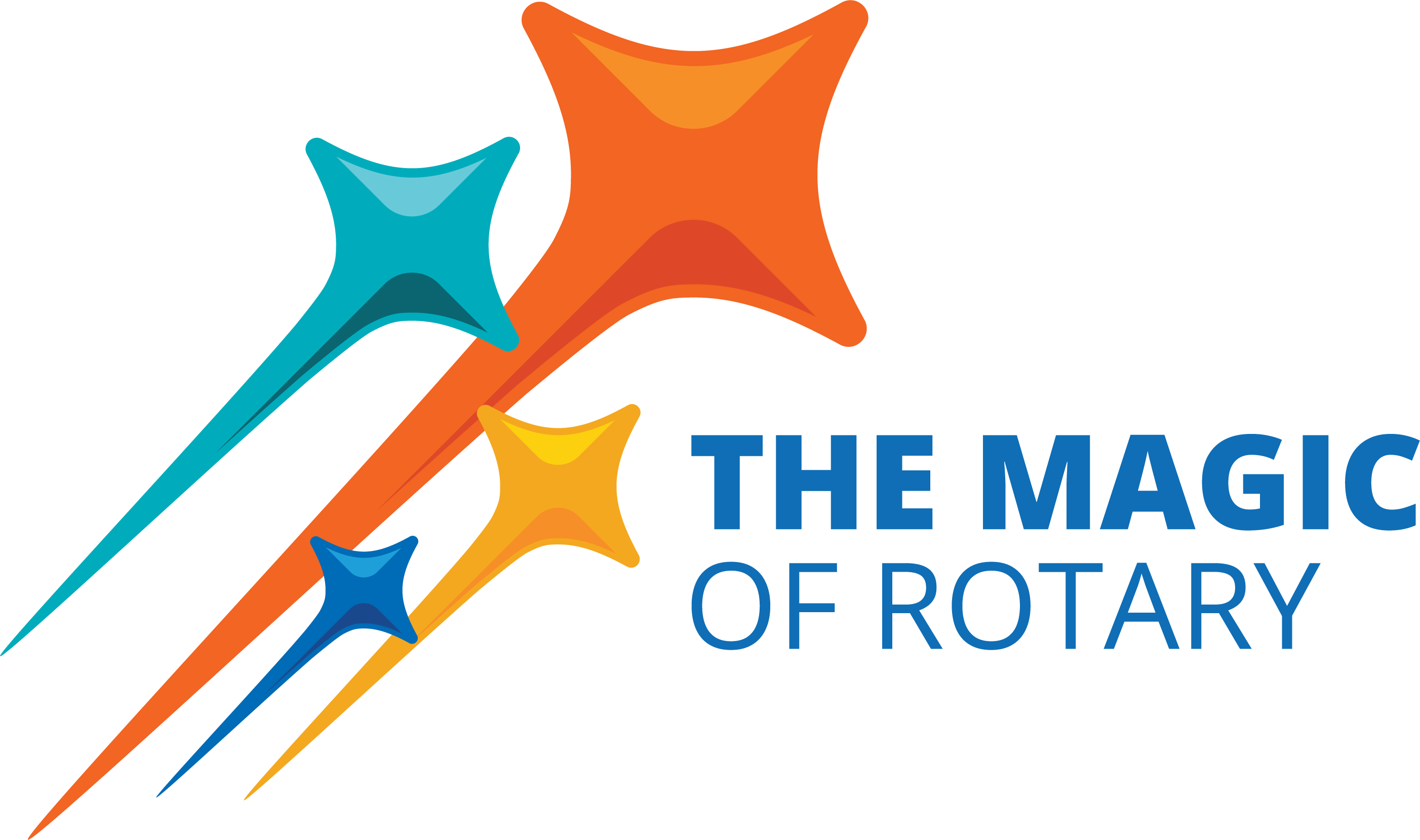Category: Services
Laptops for Technical Training in Mexico, El Salvador & Honduras
District 7620 Rotarians are asked to contribute used (5 to 9 year old, Pentium 2) laptops for technical computer-based training in a joint Rotary/Microsoft, Mexico/Monterrey University Computer Based Training (CBT) project.
The laptops will be collected and scrubbed at Nash Floors, 11641 Boiling Brook Pkwy., Rockville, Maryland (Tel. 301881-0004, Email: cmn@nashfloors.com), and shipped to the Grupo Devlyn Company in Mexico City. They will be used to augment computer maintenance training programs at Microsoft and Monterrey University campuses throughout Mexico.
Rotarians will help mentor CBT students to find jobs and start micro computer service businesses in remote areas. Computers are the control systems for companies, industries, and governments. Computer education both upgrades the effected workforce and the domestic economy by increased application of computers.
PDG Rich Carson (R.I. Rep to OAS) would like to extend the Mexico CBT project to El Salvador and Honduras. He has talked to USAID about funding. Grupo Devlyn has an optical plant in El Salvador.
Montgomery County, Maryland, high school graduates with PC Maintenance A+ and Network+ Certifications make $20 per hour or $40,000 per year; 80% go on to college and are more focused and better college students. An El Salvador student at Thomas Edison Technical High School in Silver Spring has returned to El Salvador with his father and started a micro computer service business.
Laptops for Technical Training in Brazil
District 7620 Rotarians will contribute laptops to Rio de Janeiro Rotary Districts for technical computer-based training in industrial schools. The laptops will be used to teach PC Maintenance A+ and Network+ Certifications, which are recognized world-wide. PC Maintenance A+ Certification is the entrance point for pyramid of computer certifications (i.e. Microsoft, Cisco, etc.) that can be efficiently taught on laptops using CBT (Computer Based Training) available in Portuguese. Though CBT can be used for most technical training, computers are the control systems for companies, industries, and government. Computer education both upgrades the effected workforce and the economy by increased application of computers.
Montgomery County, Maryland, high school graduates with PC Maintenance A+ and Network+ Certifications make $20 per hour or $40,000 per year; 80% go on to college and are more focused and better college students.
R.I. Director Themistocles Pinho said that shipping laptops from Rotary USA to Brazil will avoid a Brazil customs problem; therefore, laptops should be donated to the Rotary Charitable Foundation of North Bethesda, Inc. (a 501-C charitable entity).
Potential laptop technical CBT projects in Mexico and OAS were discussed with Frank Devlyn (R.I. President, 2000-1) and Rich Carson (D/G & R.I. Prepresentative to OAS).
Starting a Rotary Peace Network
A frightening prospect is on the horizon: an era of major international conflicts. Samuel Huntington at Harvard is just one prominent commentator who warns of a “clash of civilizations.” Can Rotary help head off such disasters?
Clearly, defusing tensions requires major and sustained effort. The Rotary Club of North Bethesda would like to explore one particular way of lessening conflict. It proposes a pilot project for starting to build an international grass-roots network of Rotary clubs and individual Rotarians dedicated to mitigating tensions. Luckily, the multifarious alliances across national and civilizational boundaries that Rotary International has already created provide a foundation for building the intended network.
To promote cordial, respectful relations among peoples and civilizations is ultimately a matter of morality. Only people of good character can be expected to deal with others in a peaceful, considerate manner. To collect such people and have them influence their communities for the better has always been the central mission of Rotary. The Four Way Test sums up how human beings ought to interact. We want to show that the Test can also be applied to relations among peoples and countries. The Four Way Test is an ecumenical distillation of the great moral systems of the world. By pointing to a common human ground the Test points to a basis for peace.
The Rotary Club of North Bethesda wants to draw more attention to the Four Way Test and demonstrate its high relevance for international relations. The Club would like to designate one or more experienced and intellectually qualified Rotarians who can speak to clubs on the common human ground of the Four Way Test and show how it responds to the urgent need for reducing conflict. We want to approach clubs in another country about receiving these individuals as speakers and/or for informal discussion. The emissaries will stress the character traits that Rotary has always favored and explain how they can be fostered though education and upbringing. Clubs will be encouraged to use their influence in local institutions to ensure, in particular, that education supports the formation of this kind of character. The purpose is not to try to replace but to enhance local and national culture by strengthening their moral core. The people who are most rooted in the best of their own culture tend to be the most respectful towards people from other cultures, whereas, to coin a phrase, culturally rootless people are often the most ruthless.
Our emissaries will encourage other clubs to send out their own representatives. Spreading an improved understanding of the Four Way Test can evolve into a large grass-roots peace network. Our initiative is the first step in a program that may be for the decades. Having great potential, it might one day become a core program of Rotary International.
A caution: This pilot project and any larger RI program must be wise to the ways of the world. There is no room for feel-good emotion and merely boosterish “international understanding.” If conflict in the world is to be reduced, the project must be based on a hard-nosed, down-to-earth assessment of the moral and other obstacles that have to be overcome.
The Rotary Fellowship program for 2006
The 2006 Rotary Fellowship Program has been awarded to Hanne Steensnaes from Oslo. Ms. Steensaes is a full time student at BI Norwegian School of Management- Bachelor of Finance and Administration. She is also working as a journalist in Finansavisen, one of Norway’s leading daily Financial newspapers.
Houses for the Poor at Habaraduwa
Basil de Silva with 3 other Rotarians went to Habaraduwa, 140 km from Colombo to lay the foundation stones to the 2 houses that Rotary Club of Nort Bethesda have financed to build.
Two families have been selected and that we have layed the foundation stone for the two houses. We expect the houses to be completed end of January 2006.
Christmas Gifts received in Sri Lanka
During a recent visit by the Colombo West Rotary Club to the Habaraduwa (the location of the two new houses to be built) the two families and the local staff person, Prasad, received Christmas gifts from the North Bethesda Rotary Club. Some pictures are taken outside of the houses being built. The gifts were very well received by the children and their parents.
Sri Lanka Project
The support for Sri Lanka is proposed to be a major fund-raising effort contributions by the club memberships.
The information and the report of the Colombo West Housing Projects for the Tsunami victims
The 2002 Group Study Exchange Team to District 1080 in East Anglia, England.
The members, from left, front row are: Carole Molloy, Coach/ Lecturer, Westminster, MD (sponsored by Westminster Rotary Club) and Jenny Plummer-Welker, Land Use Planner, Calvert County, MD (sponsored by Rotary Club of Prince Frederick). From left, second row: Martin Lippy, Police Sergeant, Baltimore County, MD (sponsored by Towson Rotary Club), Team Leader Barry Thompson, Physician/ Geneticist, Rotary Club of North Bethesda, MD, and C.D. Glin, Diversity Recruitment Specialist, Washington, DC (sponsored by the Rotary Club of Washington.)
The group was in England in April and May, spending a week each in Cambridge, East Dereham, Norwich, Sudbury and Lavenham visiting historical sites, learning about the local culture and enjoying vocational exchanges.
PolioPlus Program. Our members made generous contributions to Rotary’s campaign to eradicate polio (and certain other diseases) from the world by 2005. The “PolioPlus” program brought together all Rotary clubs throughout the world for a common purpose: to provide oral polio vaccine to children of all nations. PolioPlus has reached millions of children. More than 200 million children in Southeast Asia received oral polio vaccine during December 1998 and January 1999. Although donations by members were personal, it is estimated that our club contributed over $50,000 to the PolioPlus program.
Ambassadors of Goodwill. Rotary encourages the one-on-one relationship between foreign students and professionals and their counterparts in this country. This is accomplished through Rotary’s Ambassadorial Scholarship and Group Study Exchange programs. Our club members have actively participated in meeting and greeting these international visitors. Some members have provided housing for visitors during their brief stay in our area. Other members have arranged tours of their businesses to better acquaint our foreign visitors with how we do it in the United States. This also includes meeting with local legislators and learning about how our laws are made.
Rotary International Convention. The annual RI convention is held in various cities throughout the world. The conventions typically draw over 25,000 Rotarians. Our club’s president-elect attends this five-day event and provides a report to club members at a breakfast meeting. Convention speakers are excellent, RI committee meetings are informative, and the impact of Rotary worldwide is inspiring. It is an exciting and rewarding educational experience on the workings of Rotary and RI’s many and varied humanitarian projects. All those who have attended an RI convention return home with new ideas and a renewed enthusiasm for Rotary and local community projects.



